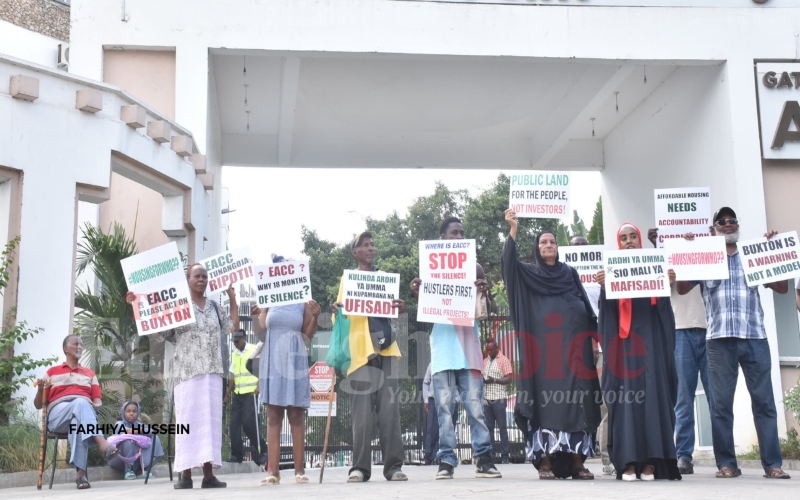National Assembly approves Privatisation Bill to overhaul state corporations

The Privatisation Bill 2025, now awaiting presidential assent, provides a new legal framework to guide the sale, restructuring and management of State corporations to enhance transparency and efficiency in the privatisation process.
Kenya is set to overhaul the management of its public enterprises after the National Assembly approved legislation aimed at transforming government-owned firms into commercially viable entities, with proceeds channelled to the Consolidated Fund.
The Privatisation Bill 2025, now awaiting presidential assent, provides a new legal framework to guide the sale, restructuring and management of State corporations to enhance transparency and efficiency in the privatisation process.
More To Read
- Legal battle looms as Sheria Mtaani challenges extended tenure of Privatisation Commission appointees
- Ndindi Nyoro questions government’s decision to sell 15 per cent Safaricom stake
- Committee calls for unified legal framework for commercial state-owned enterprises
- Petition filed to stop implementation of Privatisation Act 2025
- MPs question rising debt despite Treasury’s reduced CBK borrowing
- Maraga vows to sack loss-making parastatal chiefs if elected President
The Bill seeks to repeal and replace the previous framework that was nullified by the courts, establishing a structured and transparent approach to privatisation in line with national economic goals.
It introduces clear procedures for identifying firms for sale, undertaking stakeholder consultations, obtaining parliamentary approval and ensuring accountability in the use of proceeds.
Despite passing the Bill, the House was divided, with a section of Members of Parliament criticising what they termed as a rushed process, claiming that the item was inserted into the Order Paper at the last minute.
However, Leader of Majority Kimani Ichung’wah defended the process, insisting that the Bill had gone through adequate public participation.
“I have heard people say that State corporations are being sold without public participation and one of the amendments that was proposed by the committee of the Whole House is a new clause that obligates even the privatisation proposal to be approved by Parliament, so that even in law, we will have active public participation right from the proposal to the programme,” he said.
Ichung’wah dismissed fears that the privatisation process would lead to loss of public funds, noting that any proceeds will be deposited directly into the Consolidated Fund. He further explained that the legislation also addresses the dilution of shares in State corporations, offering greater protection for public assets.
“For any sale of government corporations, you cannot do it without express approval of the National Assembly,” he said.
He went on to fault some legislators for opposing the Bill publicly despite being absent during its debate in the House.
“They were not here… even that rudderless, clueless, visionless group… none of them were here,” Ichung’wah said.
Marsabit County MP Naomi Waqo supported the Bill, saying it was “very relevant and timely.”
“It is our prayer that this will transform our country positively,” she said.
According to the National Assembly, the Privatisation Bill (National Assembly Bill No. 36 of 2025) is divided into six parts covering preliminary provisions, coordination and oversight, development of the privatisation programme, implementation procedures, execution of agreements and management of proceeds.
The legislation establishes a Privatisation Authority to oversee the entire process, with defined roles for its leadership, including a Managing Director and Corporation Secretary. It also sets out the responsibilities of the Cabinet Secretary in charge of privatisation to ensure effective national coordination.
The Bill also mandates the preparation of a privatisation programme that identifies public entities to be sold based on defined criteria. The programme, valid for up to eight years from gazettement, must undergo public consultation and be approved by Parliament before implementation.
Under the proposed structure, the Privatisation Authority will be responsible for executing the programme, forming technical advisory committees where necessary and ensuring adherence to stakeholder engagement procedures. It also outlines methods of privatisation, the process for developing proposals and the obligations of entities identified for sale.
The final sections of the Bill govern the signing and publication of privatisation agreements to promote transparency, as well as the use and management of privatisation proceeds.
However, MPs raised concerns over a clause requiring that proceeds from privatisation be first deposited into a special interest-bearing account before being transferred to the Consolidated Fund within 90 days. The National Assembly Committees on Debt and Privatisation and on Finance and National Planning jointly recommended the removal of the clause, arguing that it would reduce the value of proceeds.
“The proposal was problematic as it would eat into the proceeds from the sale of a public entity’s shareholding and defeat the purposes of privatisation as envisaged in clause 6 of the Bill,” the committees said in their joint report.
They proposed an amendment to Clause 49 to ensure that funds from the sale of public shareholding go directly into the Consolidated Fund.
The National Treasury also opposed the clause, warning that holding proceeds in a separate account would strain government liquidity.
“You know we are raising funds to pay our bills. There might be some considerations in terms of setting aside funds for the future. But the idea is not to put aside funds for the future but to pay our bills. If you are in a net borrowing position, you don’t want to raise money and keep it,” a Treasury official said.
Ichung’wah tabled the Bill in July this year following the court’s nullification of the Privatisation Act 2023, which was declared unconstitutional, a ruling later upheld by the Court of Appeal.
The Treasury has earmarked Sh149 billion from the sale of State assets for the 2025/26 financial year to support the budget. Among the key entities listed for sale are a 65 per cent government stake in Kenya Pipeline Company valued at Sh100 billion, the Kenyatta International Convention Centre, New Kenya Co-operative Creameries and Consolidated Bank.
Most of these State-owned firms are currently debt-ridden and loss-making, a situation the government hopes to reverse through the privatisation plan, which is expected to improve efficiency, reduce fiscal pressure and attract new investment.
Top Stories Today
















































